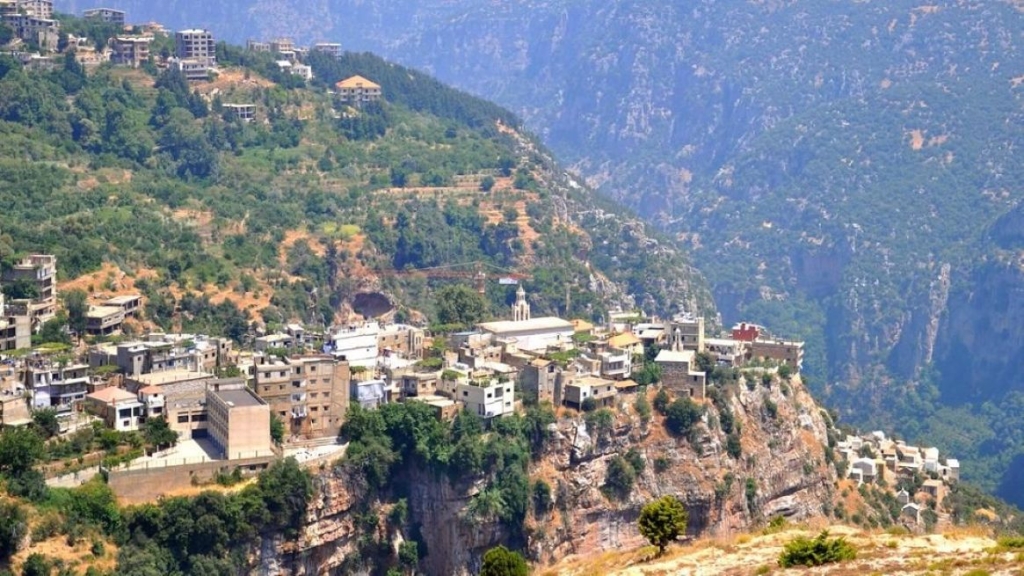A small space in Hadchit brings joy to children’s hearts
HADCHIT, Lebanon — Amid applause from residents and the beaming smiles of children who had long dreamed of a safe place to play and run, a new playground for children and teenagers was inaugurated in the Syriac Maronite town of Hadchit. The event marked a long-awaited moment for the town’s young and old alike: the realization of a dream turned into reality.
This modest playground is more than just a space with artificial turf. It represents a haven of hope, carrying the promise of a brighter future for Hadchit’s youth, away from the pressures and complexities of daily life.
In his speech, Hadchit’s Mayor Carlos Ishaq described the project as a milestone that reignites hope and spreads light even in the darkest times. He called the playground a carefully planned step toward providing a safe, colorful environment for children. Mayor Ishaq also expressed gratitude to the Hadchit Endowment Committee and to Hadchit native, producer and director Oscar Zoghbi, for his deep commitment and generous support of the project.
“I got involved with the project after talking with journalist Rania Zahra Sharbil, one of the first to imagine a safe space for Hadchit’s children,” said director Oscar Zoghbi. He added that he was motivated to help turn Sharbil’s and the town’s dream into reality.
“A film about Phoenicia in Lebanon is set to be produced, creating jobs for around 300 Lebanese families and involving well-known actors and directors,” said Rania Zahra Sharbil. She added that the project will also showcase Hadchit and its rich history.

Hadchit, (Syriac: ܚܕܫܝܬ) a small town in northern Lebanon, has a name whose origins are believed to be Canaanite (Greek: Phoenician) — from the root “Hadash”, meaning “new ” or “recent.” In Canaanite, “Hadash” refers to the new moon, or crescent, suggesting the meaning “new village.” The name may also have Syriac roots, meaning “peak of gray hair” or “crown of Seth,” with Seth being a personal name (the third son of Adam).
The town is home to a significant Syriac Maronite community and is renowned for its rich history.


















